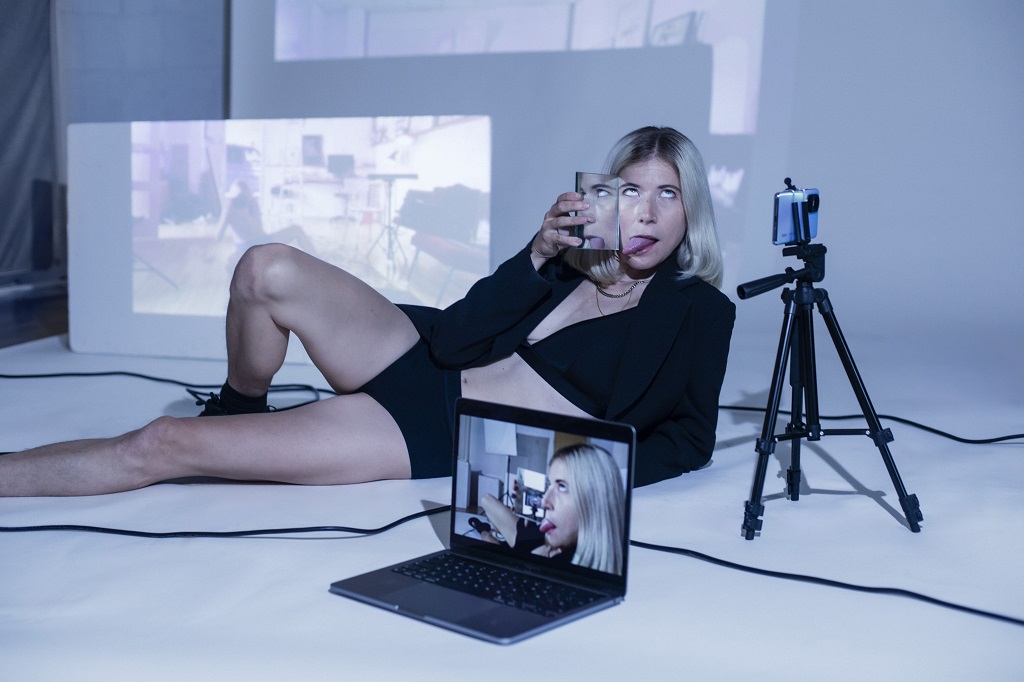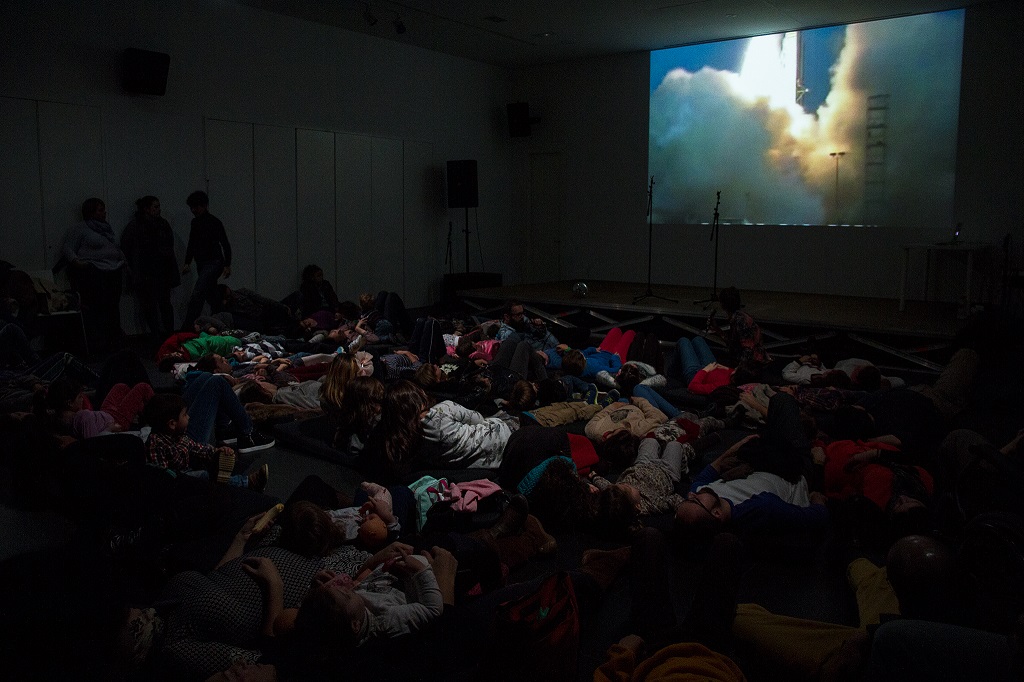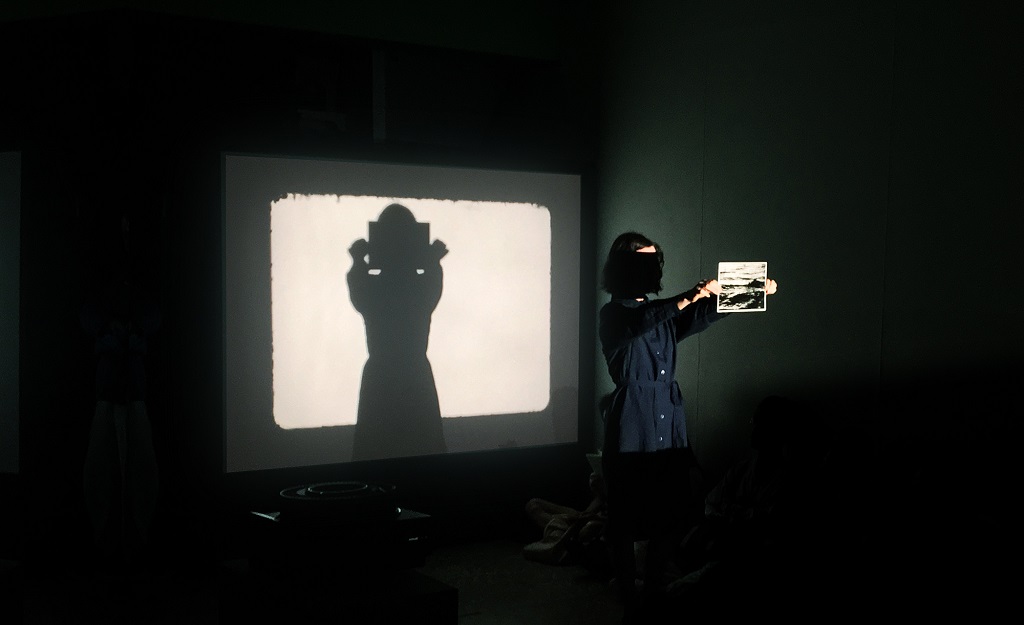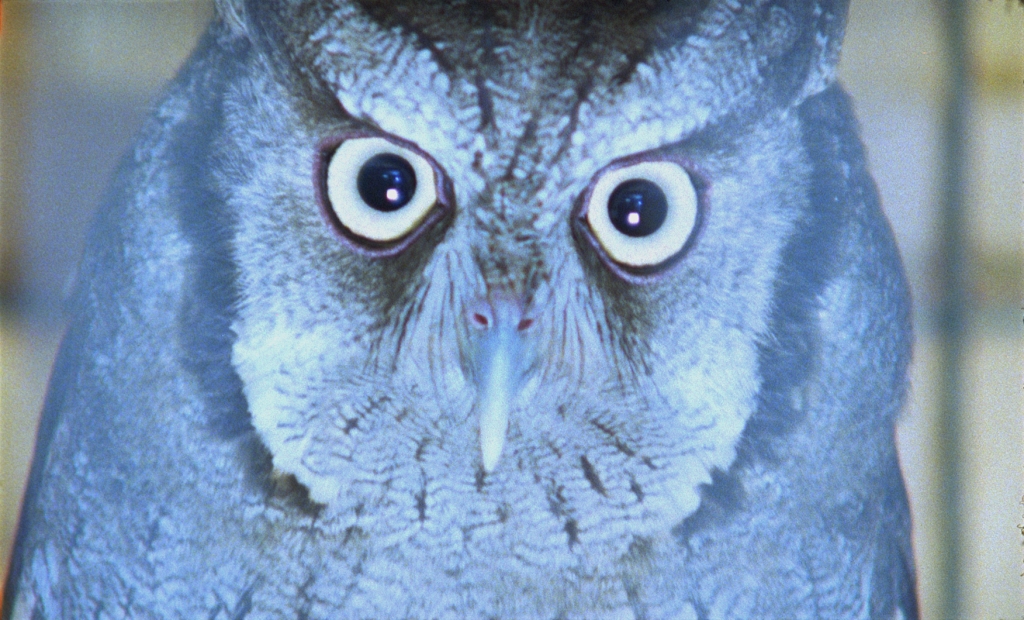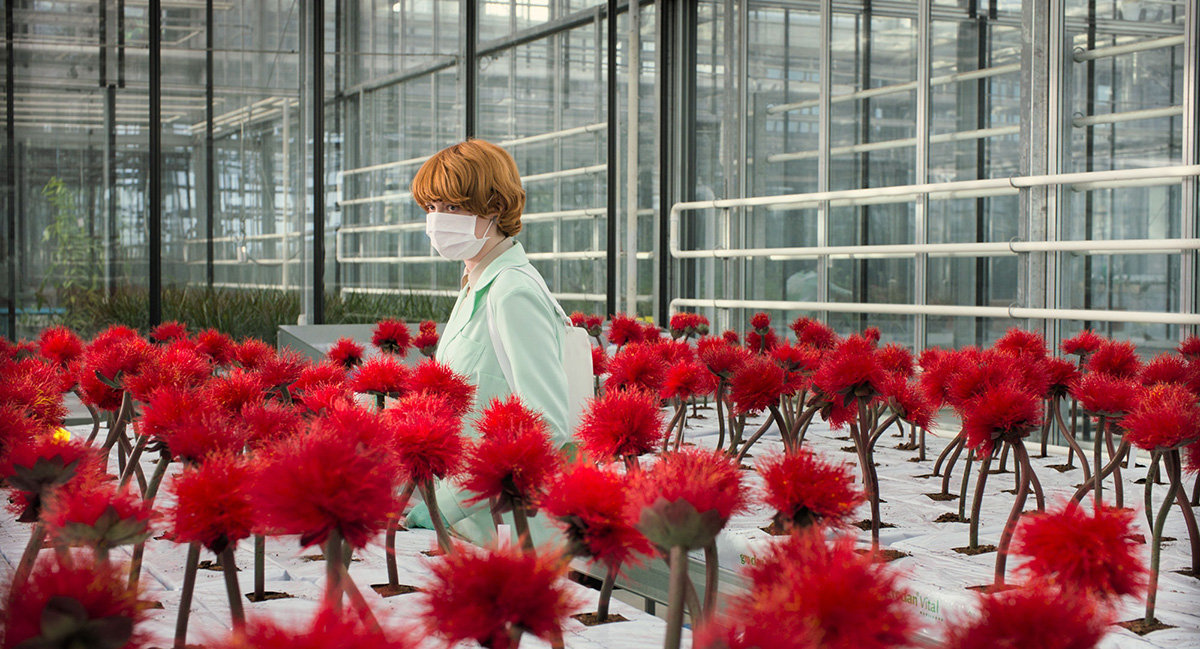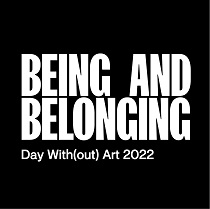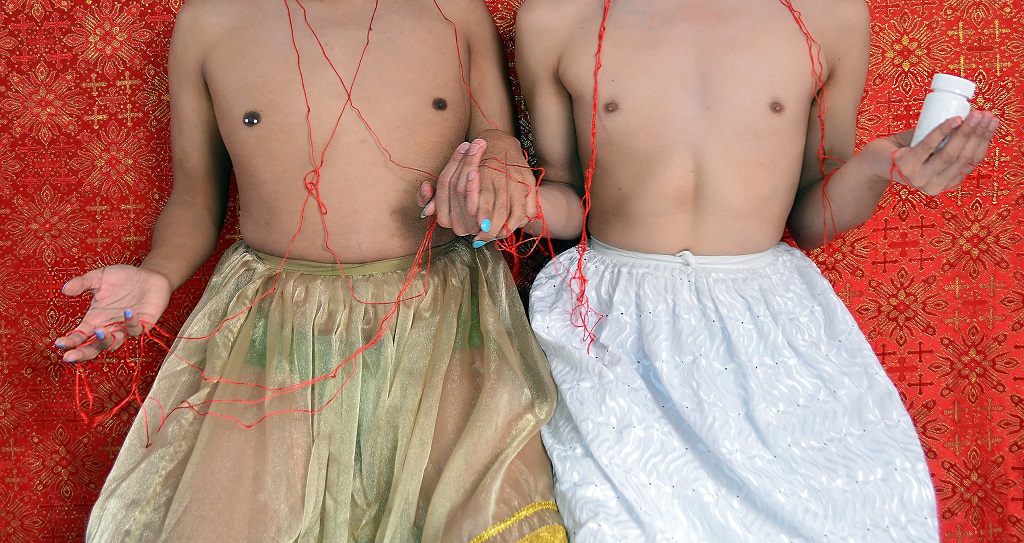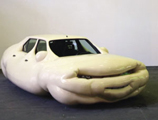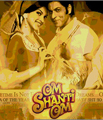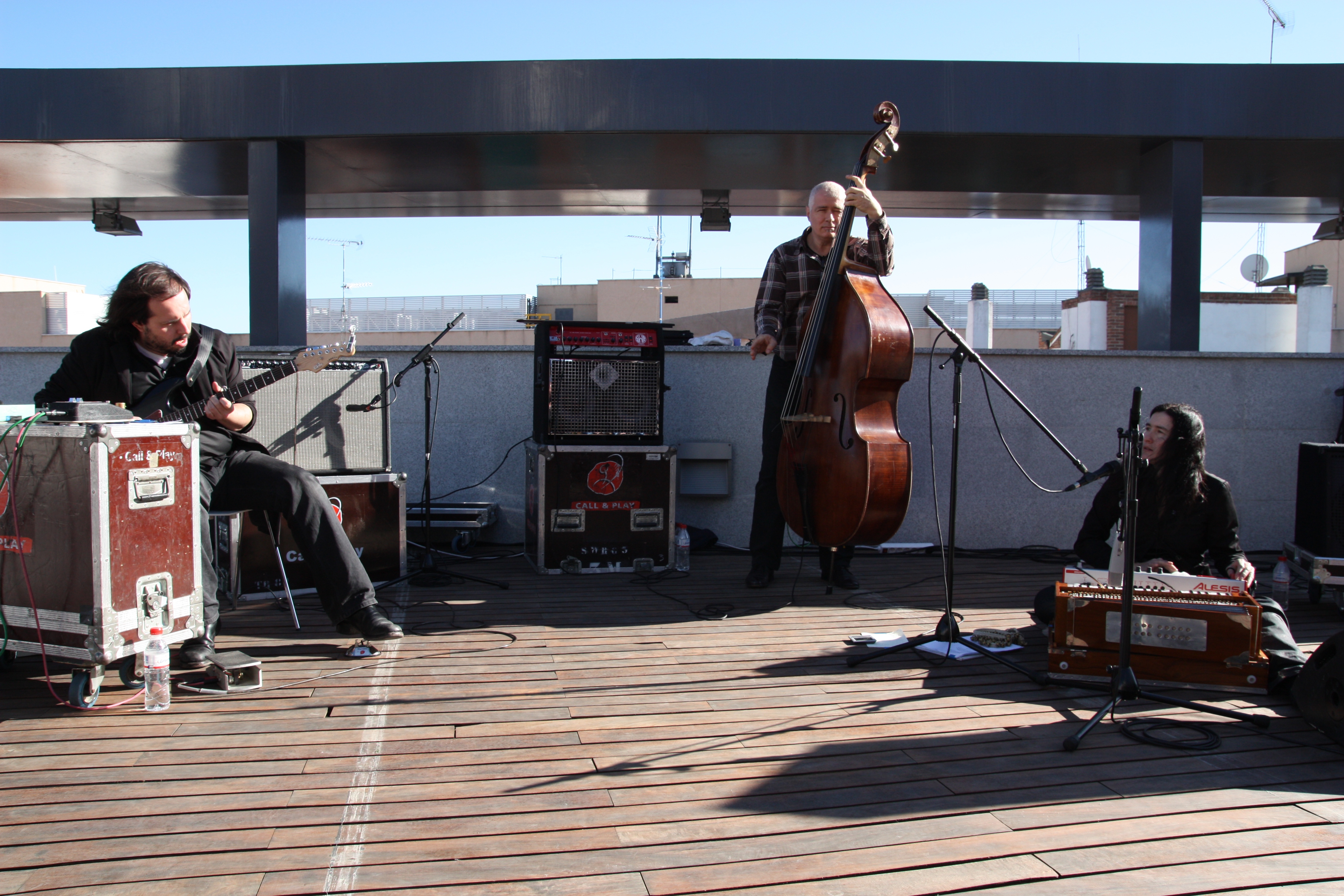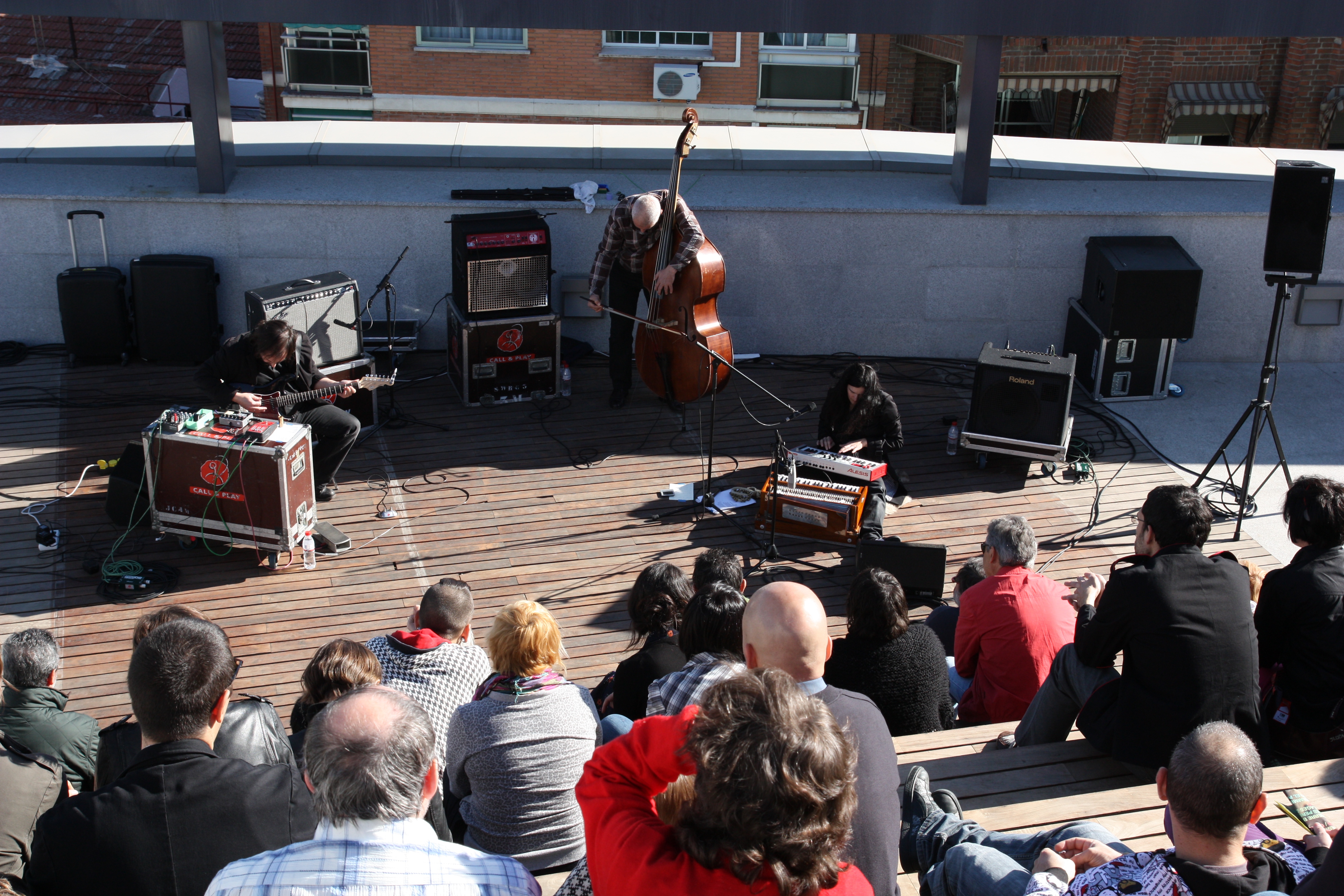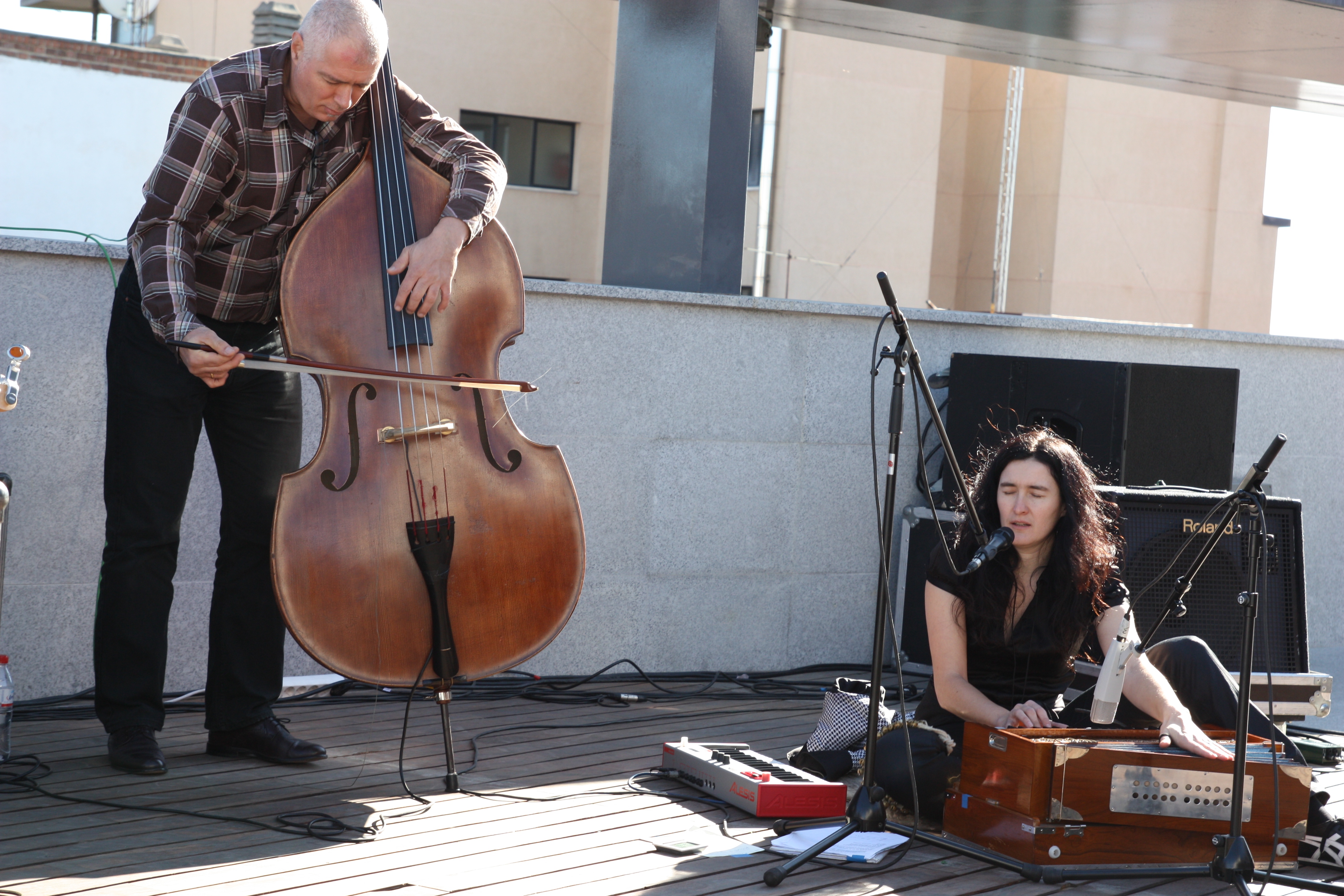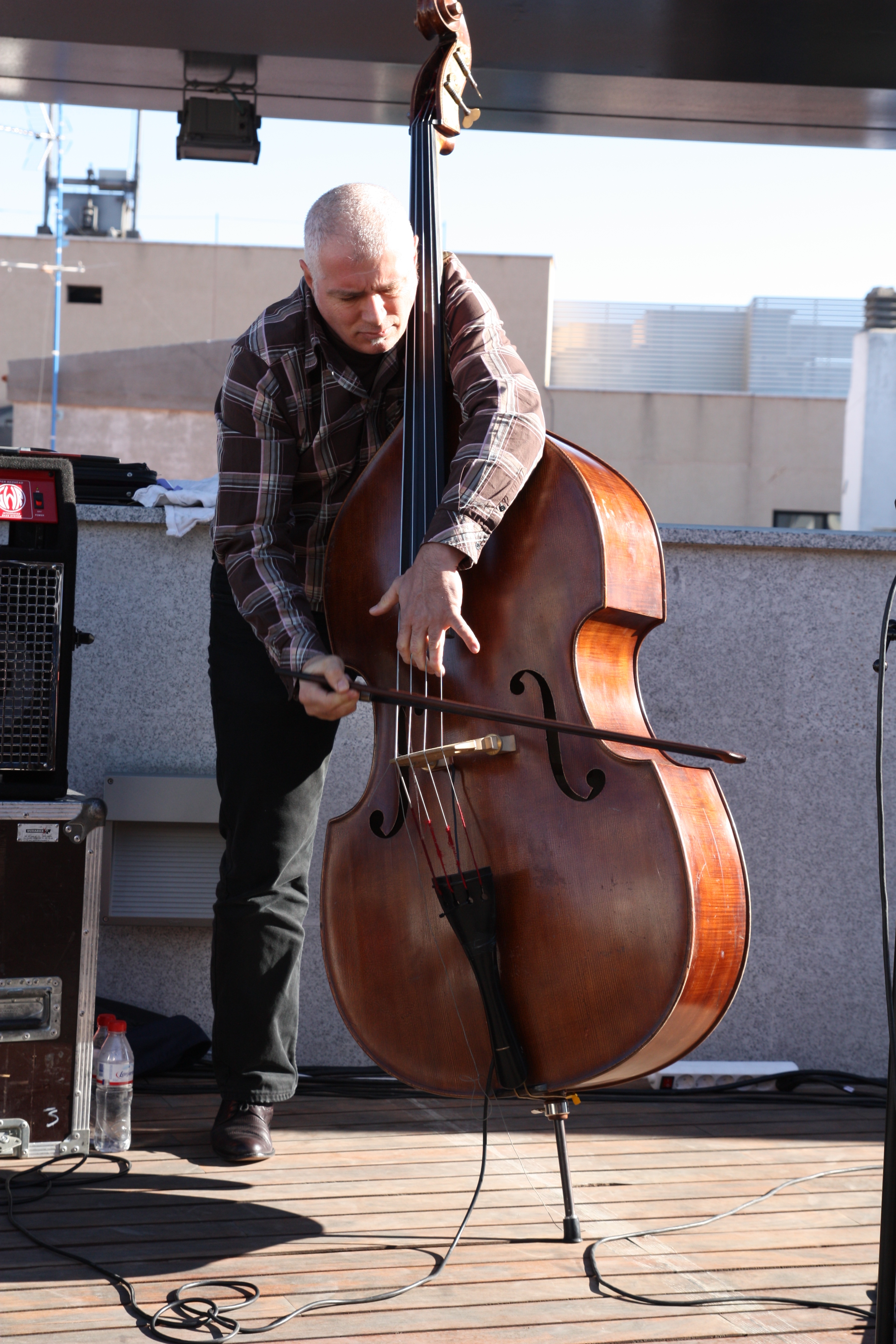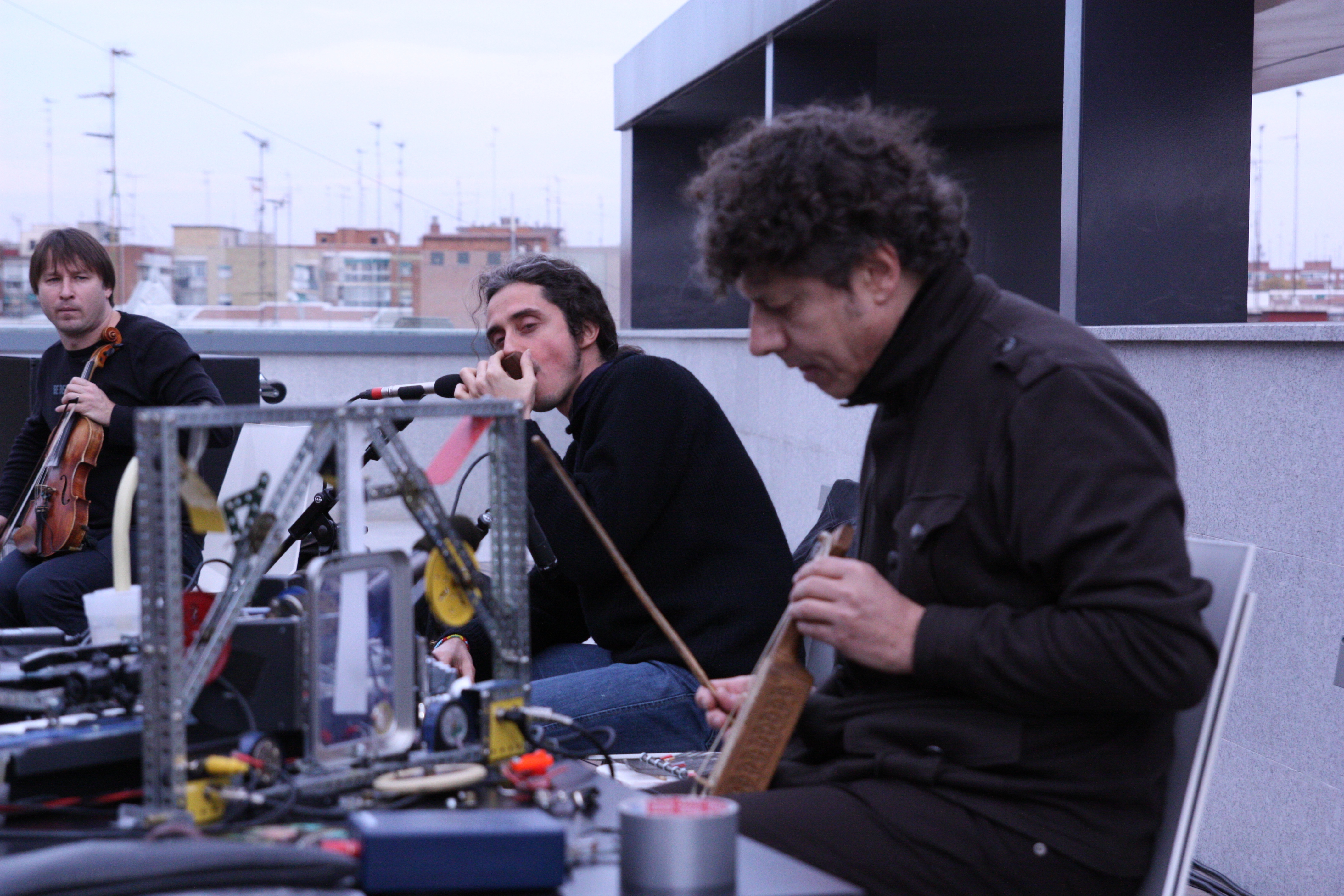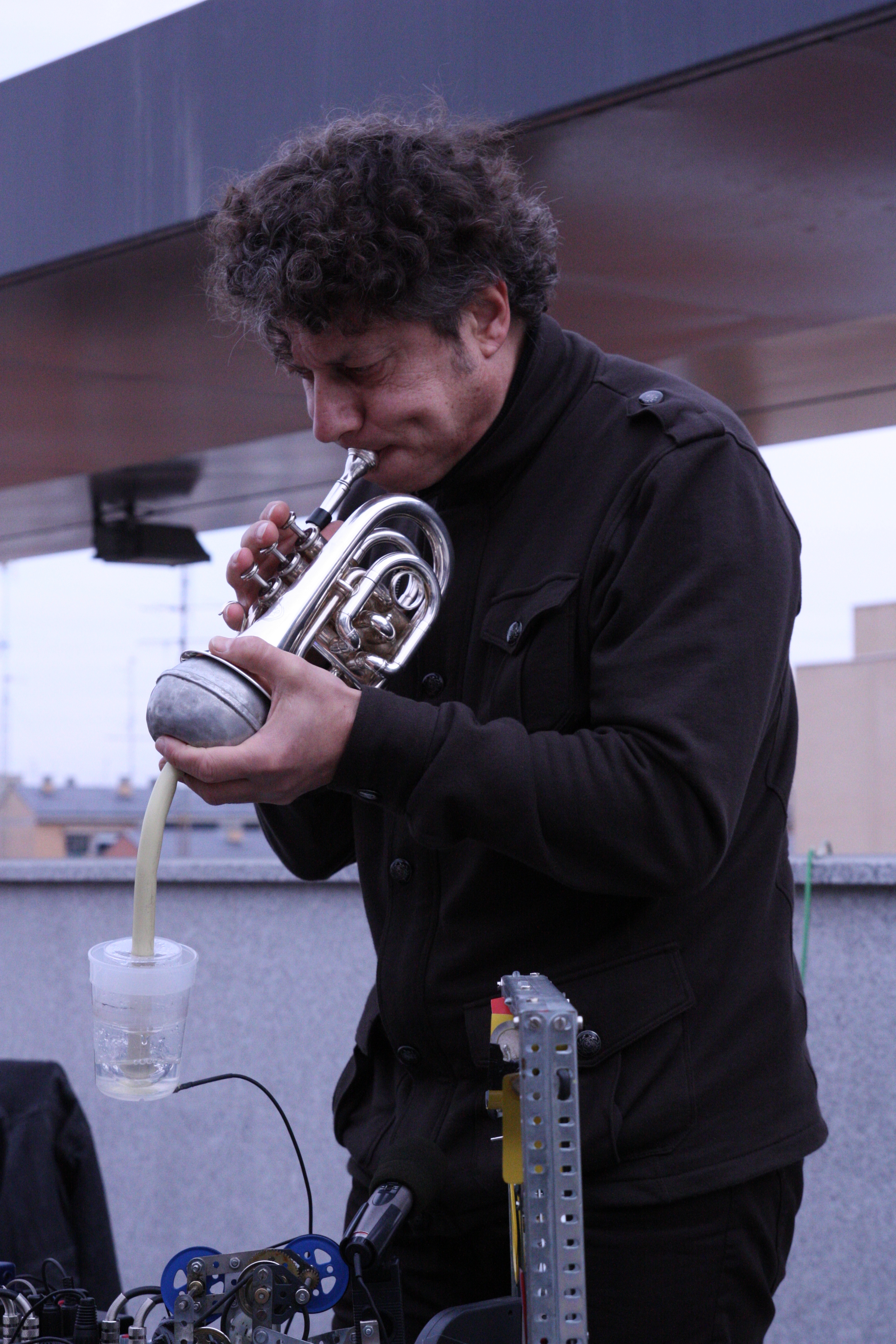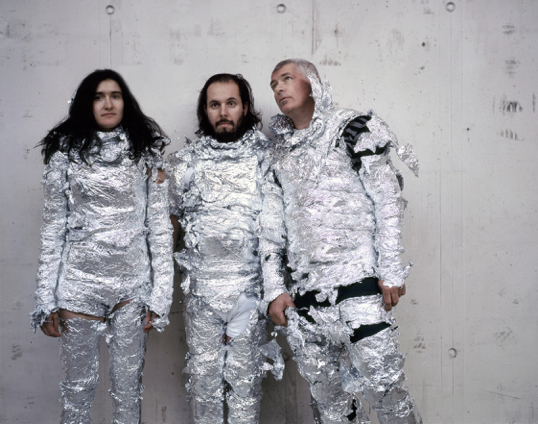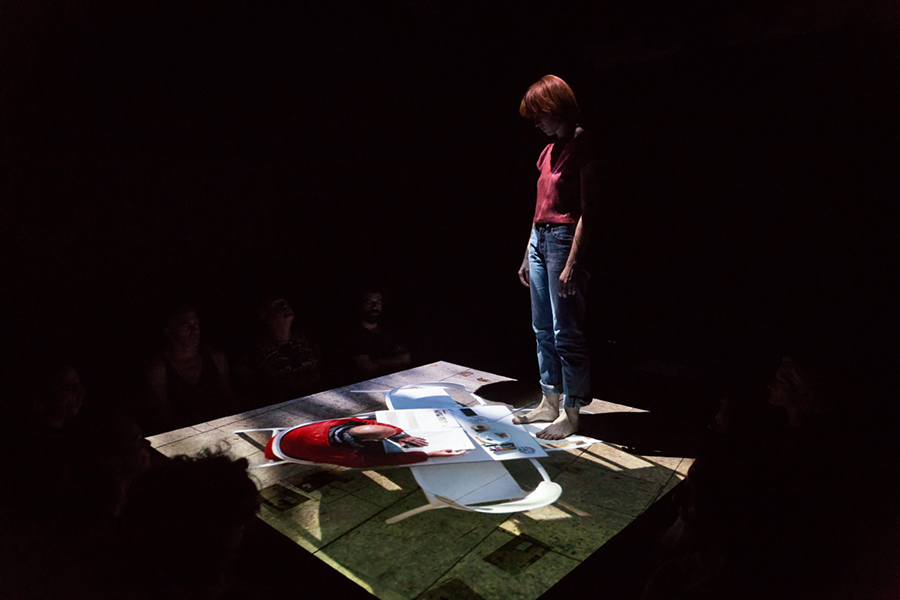LABORAL CENTRO DE ARTE Y CREACIÓN INDUSTRIAL AND CA2M CENTRO DE ARTE DOS DE MAYO COPRODUCTION
The exhibition AUTO. road and movies complete the programming of Sueño y materia -dream and material- proposing an approximation to some of the aspects of the film and automobile. The films that compose the cycle, rather than trying to make an overview from the film gender, compose an individual propose of analysis that finds in its complement and global context within the exhibition. If the show reflects on the automobile culture from an art perspective from the latest years, and does it from the consideration of the car as the greatest exponent of a productive and technologic period that already perceive other social and industrial realities. This cycle allows casting a retrospective glace that illustrates complementary aspects of the show..
The cycle is composed by several European and Northamerican productions which a faithful reflexion of the way both continents represent the automobil. In the States, the great and fast adaptability of the film productions easily integrate automobile as well as unfold the fast development of a subgender as it is the road movie. The road, search for freedom, escape, speed and persecutions become common elements and codes in many films. On the contrary, the European cinematographic glace is considerable more critic and scentic about automobile and culture. It is not common within the United States culture a movie that critically reflects on the problems derivated from the automobile. On the contrary, in Europe, automobile is the sintome and the sign of unadecuated evolution of our society: alienation, violence, urban problems and deshumanification. The critic to the automobile culture takes here the demonstration of a disagreement that embraces the whole society. Alongside the proper cinematographic productions, CA2M presents other road movies with a more experimental or enssayist character, showing as well other aspects as the extension and adaptability of the proper road movie concept as a construction mechanism. Works as Sophie Calle or Chip Lord acquire greater relevance in aspects such as autobiography, identitarian or culture.
Alberto Martín
Curator of the exhibition Auto. Dream and materia
FR 23 OCT 20:30 H.
Weekend. Jean-Luc Godard. 1967, V.O.S., French 105 min.
A supposedly idyllic weekend trip to the countryside turns into a never-ending nightmare of traffic jams, revolution, cannibalism and murder as French bourgeois society starts to collapse under the weight of its own consumer reoccupations. A car trip by road will be full of unexpected contingences, gestions, accidents and eccentric characters.
Fri 30 OCT 20:30 H.
Night on Earth. Jim Jarmusch. 1991, V.O.S., English. 129 min.
A collection of five vignettes taking place during the same night, concerning the temporary bond formed between taxi driver and passenger in five cities: Los Angeles, New York, Paris, Rome, and Helsinki. Cada historia trata sobre la relación que entabla un taxista local y sus pasajeros. Journeys where occur diverse events ranging from comic to dramatic..
FR 6 NOV 20:30 H.
Trafic. Jacques Tati. 1971, V.O.S. French. 96 min.
Mr. Hulot is a bumbling automobile designer who works for Altra, a Paris auto plant. He, along with a truck driver and a publicity agent (Maria Kimberly), take a new camper-car (designed by Hulot) to an auto Fair in Amsterdam. On the way there, they encounter various obstacles on the road. Some of the obstacles that Hulot and his companions encounter are getting impounded by Dutch customs guards, a car accident (meticulously choreographed by the filmmakers), and an inefficient mechanic. In the film, “Tati leaves no element of the auto scene unexplored, whether it is the after-battle recovery moments of a traffic-circle chain-reaction accident, whether it a study of drivers in repose or garage-attendants in slow-motion, the gas-station give-away (where the busts of historical figures seem to find their appropriate owners) or the police station bureaucracy.”
FRI 13 NOV 20:30 H.
Paris, Texas. Wim Wenders. 1984, V.O.S. English 147 min.
An amnesiac man who, after mysteriously wandering out of the Mojave Desert, attempts to re-assimilate his life with his brother, his seven year old son, as well as track down his former wife.
FRI 27 NOV 20:30 H.
No Sex last night (Double-Blind). Sophie Calle. 1992, V.O.S. English 75 min.
In this road movie, Sophie Calle and Gregory Shepard account their road trip across the States. Both hide behind their cameras as they make the mythical journey westward from New York to California in Greg's troubling convertible. The couple stops in a Las Vegas Drive-Thru wedding chapel and decide to get married, in order to save their shaky relationship, with their cameras recording everything. A road movie fraught with places that the protagonists take distance from. The third character, the car, actively participates during the complete shooting of the film, touting the trip despite being the habitual habitat of Sophie and Greg. Homemade shots with apparently thoughtless shots, reflections on the human condition and on the couple with a exquisite editing which makes such an estrange and active film.
FRI 4 DIC 20:30 H.
Motorist. Chip Lord. 1989, V.O.S. English. 70 min.
El automóvil como icono norteamericano es un tema que siempre ha fascinado a Chip Lord. A "road video" homage to the car culture of the 1950s and '60s. MOTORIST follows the driver of a 1962 Thunderbird as he crosses the Southwest and arrives into Los Angeles, all the while commenting on the road and his personal history with cars. Richard Marcus plays the motorist with a nervous intensity that captures the "white line fever" of a cross-country road trip.
FRI 11 DIC 20:30 H.
The Devil on Wheels Duel. Steven Spielberg. 1971, V.O.S. English 90 min.
The devil on wheels is one of the greatest representative films where the vehicule become a threat. Indeed, the threat reaches a methaphoric character, an atmosphore of nighmares that refers and affects nature and the surviving instinte of the protagonist, a commercial agent that drives his car and is besieged my a truck. The car is shotted emphasizing its agressive and almost monstrious character, where the truck driver is no the one frightening, but the truck itself. This humanization of the truck provoques that we get to see it endowed by instinct and will.
FRI 18 DIC 20:30 H.
Little Miss Sunshine. Jonathan Dayton and Valerie Faris, 2006, V.O.S., English 101 min.
The Hoover is quite a conflict family: Sheryl Hoover is an overworked mother of two children who lives in Albuquerque, New Mexico. Her brother Frank is a gay scholar of French author Marcel Proust, temporarily living at home with the family after a suicide attempt. Her husband Richard is striving to build a career as a motivational speaker and life coach. Dwayne, Sheryl's son from a previous marriage, is an unhappy teenager who has taken a vow of silence until he can accomplish his dream of getting into the US Air Force Academy in order to become a test pilot. Richard's foul-mouthed father, Edwin, a World War II veteran recently evicted from a retirement home for using and selling heroin, lives with the family. He is close with his seven-year-old granddaughter, Olive.
Free entry
